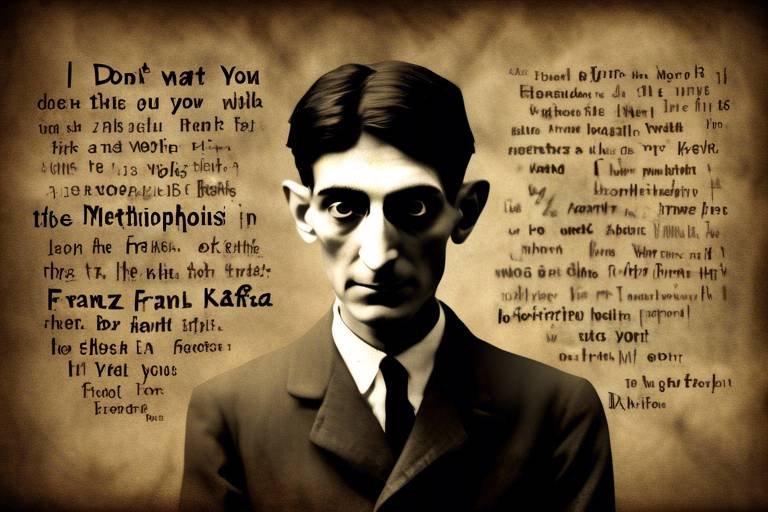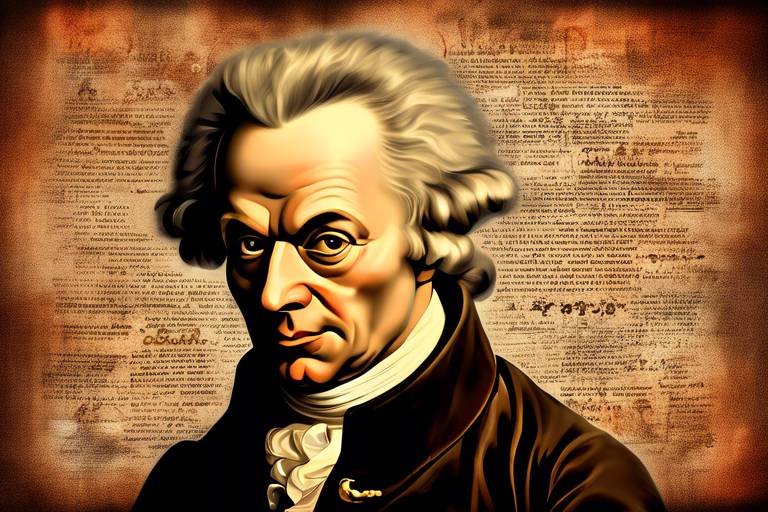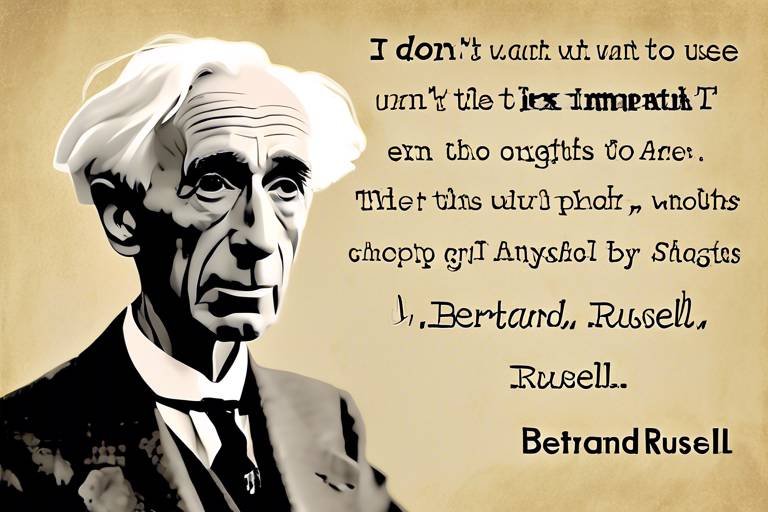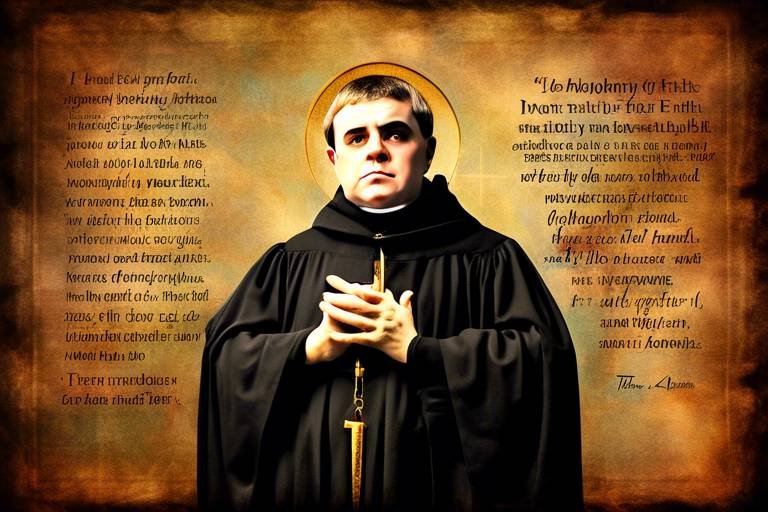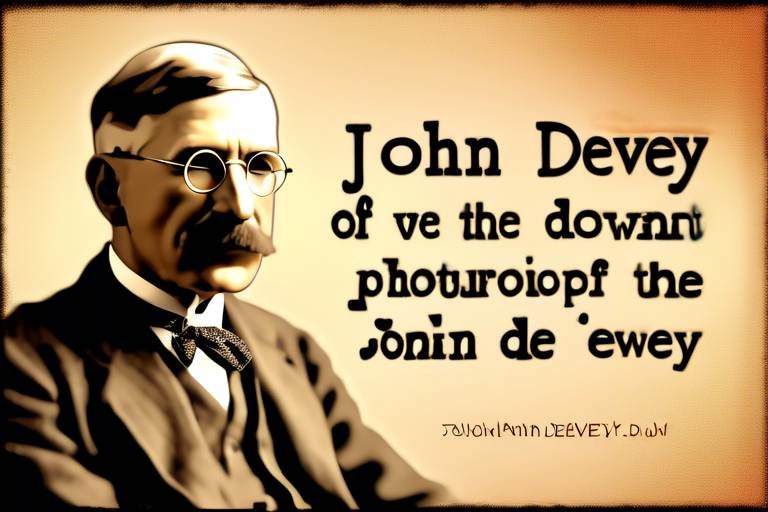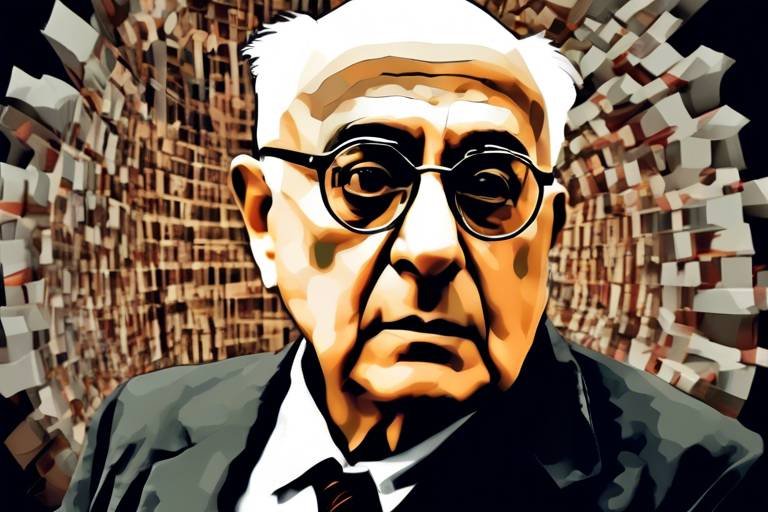Existentialism in Franz Kafka’s The Metamorphosis
Franz Kafka’s The Metamorphosis is not just a story about a man turning into a giant insect; it is a profound exploration of existential themes that resonate deeply with the human experience. At its core, the narrative delves into the complexities of identity, alienation, and the search for meaning in a world that often seems chaotic and absurd. Kafka invites readers to embark on a journey through the mind of Gregor Samsa, the protagonist, whose startling transformation serves as a powerful metaphor for the existential dread that many individuals face in modern society.
The themes of existentialism are woven intricately throughout the fabric of the story. As Gregor awakens to find himself transformed, he is thrust into a reality that challenges the very essence of his being. This transformation prompts readers to ponder: what does it mean to exist? In a world where societal norms dictate our roles, how do we retain our sense of self? Kafka’s work compels us to confront these questions, urging us to reflect on our own lives and the absurdity that often accompanies them. The narrative is rich with symbolism and metaphors, each layer revealing deeper insights into the human condition.
One of the most striking aspects of The Metamorphosis is how it encapsulates the feeling of isolation that many people experience. Gregor's metamorphosis not only alienates him from his family but also from his own sense of identity. This profound sense of alienation is a hallmark of existentialist literature, reflecting the struggles of individuals who feel disconnected from the world around them. Kafka paints a vivid picture of how societal expectations and familial obligations can suffocate personal identity, leading to a crisis that is both tragic and relatable.
As we navigate through Gregor's story, we are led to examine the absurdity of existence itself. Kafka’s narrative serves as a reminder that life is unpredictable, often devoid of rational explanations. The absurdity of Gregor’s transformation challenges our understanding of freedom and autonomy, as he finds himself trapped in a body that no longer represents who he is. This physical constraint mirrors the existential struggle many face when trying to assert their individuality in a conformist society.
Ultimately, Kafka’s The Metamorphosis is a poignant reflection on the human experience, urging readers to confront the uncomfortable truths of existence. It challenges us to consider the consequences of inaction and resignation in the face of overwhelming change. Gregor's tragic fate serves as a cautionary tale about the importance of choice and responsibility in shaping our lives. As we grapple with the complexities of our own existence, Kafka’s work remains a timeless exploration of the existential themes that continue to resonate with readers today.
- What is the main theme of The Metamorphosis?
The main theme revolves around existentialism, exploring identity, alienation, and the search for meaning in a chaotic world. - How does Gregor's transformation symbolize existential dread?
Gregor's transformation into an insect reflects the loss of identity and the fear of being misunderstood in a society that imposes rigid expectations. - What role does family play in Gregor's alienation?
The family's reaction to Gregor’s change highlights the complexities of familial relationships and societal expectations, contributing significantly to his existential crisis. - How does Kafka portray the absurdity of existence?
Kafka illustrates the absurdity through Gregor's inexplicable transformation, emphasizing life's unpredictability and the futility of seeking rational explanations.

The Metamorphosis,
This article explores the themes of existentialism as portrayed in Franz Kafka's The Metamorphosis, examining the protagonist's transformation, alienation, and the search for meaning in a seemingly absurd world.
Gregor Samsa's sudden metamorphosis into an insect serves as a powerful metaphor for existential dread and the loss of identity, prompting readers to question the nature of self and existence. Imagine waking up one day and discovering that you have transformed into something utterly unrecognizable. This shocking transition not only reflects Gregor's internal struggles but also serves as a commentary on the fragility of human identity. The metamorphosis strips Gregor of his role as a provider and a son, leaving him in a state of confusion and despair. It raises the question: what does it mean to exist when your very essence is challenged?
Kafka illustrates the profound alienation experienced by Gregor, reflecting existentialist themes of isolation in a society that fails to understand or accept the individual, leading to a crisis of identity. As Gregor becomes increasingly isolated in his room, the walls that once provided comfort now serve as barriers to connection. The feeling of being trapped is palpable, echoing the sentiments of many who feel disconnected in a fast-paced world. This alienation is not just physical; it’s emotional and psychological, as Gregor grapples with the realization that his family, once his support system, now views him as a burden.
The Samsa family's reaction to Gregor's transformation highlights the complexities of familial relationships and societal expectations, revealing how these dynamics contribute to his existential crisis and ultimate despair. Initially, there is a sense of concern, but as time progresses, their empathy wanes, replaced by frustration and repulsion. This shift in attitude underscores a critical question: how do we respond to those who are different? The family's treatment of Gregor serves as a reflection of societal tendencies to ostracize those who deviate from the norm.
Gregor's struggle against societal norms emphasizes the pressures individuals face, illustrating how expectations can lead to feelings of inadequacy and a loss of personal meaning. In a world that values productivity and conformity, Gregor's inability to fulfill his role as a worker leads to a profound sense of failure. The irony is striking: he sacrificed his own desires for the sake of his family, only to find himself discarded when he could no longer contribute. This raises an important point about the value of individuality in a conformist society.
The emotional detachment displayed by Gregor’s family underscores the theme of alienation, showcasing how relationships can deteriorate when one fails to conform to societal standards. As Gregor becomes more insect-like, his family’s love and acceptance fade. This deterioration of familial bonds is a stark reminder of how easily love can turn to indifference when faced with the unfamiliar. It begs the question: can true love survive the test of change, or is it contingent upon the status quo?
Throughout The Metamorphosis, Gregor's journey reflects the existential quest for meaning in a chaotic world, prompting readers to consider the absurdity of life and the search for purpose. His transformation forces him to confront the very essence of his existence. What does it mean to live a meaningful life? As Gregor loses his ability to communicate and connect, he is left with nothing but his thoughts and fears. This internal struggle is a universal experience, resonating with anyone who has ever questioned their place in the world.
Kafka’s narrative embodies the existential belief in the absurd, as Gregor's inexplicable transformation serves as a reminder of life's unpredictability and the futility of seeking rational explanations for existence. Life often throws us into situations that defy logic, leaving us to grapple with the chaos. Gregor's plight exemplifies this absurdity, as he navigates a world that has become hostile and incomprehensible. The question lingers: how do we find meaning in a world that seems devoid of it?
Gregor's transformation challenges the notion of freedom, as his physical constraints mirror the existential struggle for autonomy and the inherent limitations imposed by society. While he is physically trapped in his new form, he also experiences a profound sense of existential entrapment. This paradox highlights the struggle many face in seeking true freedom while being bound by societal expectations and personal responsibilities.
Kafka emphasizes the consequences of inaction and resignation, illustrating how Gregor’s inability to adapt to his new reality leads to tragic outcomes, reinforcing existentialist themes of choice and responsibility. As Gregor retreats into his shell, he inadvertently seals his fate. His inaction becomes a metaphor for the broader human experience—how often do we find ourselves paralyzed by fear or uncertainty? The tragic end of Gregor’s story serves as a cautionary tale about the importance of confronting our realities, no matter how uncomfortable they may be.
- What is the main theme of The Metamorphosis?
The primary theme revolves around existentialism, exploring identity, alienation, and the search for meaning in an absurd world. - How does Gregor's transformation symbolize existential dread?
Gregor's transformation into an insect reflects the fear of losing one's identity and the struggle to find purpose in life. - What role do family dynamics play in the story?
The family's reaction to Gregor's change highlights societal expectations and the complexities of love and acceptance in the face of difference. - What does Kafka suggest about societal expectations?
Kafka critiques societal norms that prioritize productivity over individuality, leading to feelings of inadequacy and alienation.

examining the protagonist's transformation, alienation, and the search for meaning in a seemingly absurd world.
This article explores the themes of existentialism as portrayed in Franz Kafka's The Metamorphosis, examining the protagonist's transformation, alienation, and the search for meaning in a seemingly absurd world.
Gregor Samsa's sudden metamorphosis into an insect serves as a powerful metaphor for existential dread and the loss of identity, prompting readers to question the nature of self and existence.
Kafka illustrates the profound alienation experienced by Gregor, reflecting existentialist themes of isolation in a society that fails to understand or accept the individual, leading to a crisis of identity.
The Samsa family's reaction to Gregor's transformation highlights the complexities of familial relationships and societal expectations, revealing how these dynamics contribute to his existential crisis and ultimate despair.
Gregor's struggle against societal norms emphasizes the pressures individuals face, illustrating how expectations can lead to feelings of inadequacy and a loss of personal meaning.
The emotional detachment displayed by Gregor’s family underscores the theme of alienation, showcasing how relationships can deteriorate when one fails to conform to societal standards.
Throughout The Metamorphosis, Gregor's journey reflects the existential quest for meaning in a chaotic world, prompting readers to consider the absurdity of life and the search for purpose.
Kafka’s narrative embodies the existential belief in the absurd, as Gregor's inexplicable transformation serves as a reminder of life's unpredictability and the futility of seeking rational explanations for existence.
Gregor's transformation challenges the notion of freedom, as his physical constraints mirror the existential struggle for autonomy and the inherent limitations imposed by society.
Kafka emphasizes the consequences of inaction and resignation, illustrating how Gregor’s inability to adapt to his new reality leads to tragic outcomes, reinforcing existentialist themes of choice and responsibility.
Franz Kafka’s The Metamorphosis presents us with a profound exploration of existential themes through the character of Gregor Samsa. His abrupt transformation into an insect is not merely a bizarre plot twist; it symbolizes the deep existential dread that many individuals face in the modern world. Imagine waking up one day to find that your entire identity has been stripped away, leaving you with nothing but confusion and despair. This is the essence of Gregor’s experience, as he grapples with his new reality while struggling to understand who he is without his former identity as a worker and provider.
As Gregor undergoes this metamorphosis, he becomes increasingly alienated from his family and society. Initially, he is concerned about the practical implications of his transformation—missing work and disappointing his employer. However, as the story unfolds, it becomes clear that his physical change also leads to a profound emotional alienation. His family’s reaction to his new form reveals the fragility of human connections. They are horrified and repulsed, illustrating how quickly love can turn to disdain when faced with the unfamiliar. This alienation reflects a broader existential theme: in a world that often prioritizes conformity and productivity, those who deviate from the norm are cast aside.
Moreover, Gregor's struggle to find meaning in his absurd existence resonates deeply with the reader. He reflects on his past life, his responsibilities, and the expectations placed upon him, yet he finds himself trapped in a body that no longer allows him to fulfill those roles. This raises an important question: what does it mean to exist when the very foundation of one’s identity is shattered? Kafka forces us to confront the absurdity of life, where rational explanations seem futile, and the search for meaning becomes a solitary endeavor.
In essence, Gregor Samsa’s journey in The Metamorphosis serves as a mirror reflecting our own struggles with identity, alienation, and the relentless quest for meaning in an absurd world. Just as Gregor's transformation leads him to question his place in the universe, we too are prompted to explore our own existence and the societal constructs that shape our identities. Are we merely products of our environment, or do we possess the autonomy to define our own meaning? Kafka’s work leaves us pondering these questions long after the final page is turned.
- What is the main theme of The Metamorphosis? The main themes include existentialism, alienation, and the search for meaning in a chaotic world.
- How does Gregor's transformation affect his family? Gregor's transformation leads to emotional detachment and alienation from his family, revealing the fragility of familial bonds.
- What does Kafka suggest about societal expectations? Kafka illustrates how societal expectations can lead to feelings of inadequacy and a crisis of identity.
- Is The Metamorphosis an absurdist work? Yes, Kafka's narrative embodies absurdist themes, highlighting the unpredictability of life and the futility of seeking rational explanations.

The Transformation of Gregor Samsa
Gregor Samsa's sudden metamorphosis into a grotesque insect is not just a shocking plot twist; it serves as a profound metaphor for existential dread and the loss of identity. Imagine waking up one day, not just late for work, but transformed into a creature that defies all societal norms. This transformation forces readers to confront uncomfortable questions about the nature of self and existence. Are we defined by our roles in society, or is there something deeper that constitutes our identity?
Kafka's portrayal of Gregor's change compels us to explore the fragility of identity in a world that often values individuals solely for their utility. Before his transformation, Gregor is a hardworking salesman, burdened by the expectations of his family and society. He embodies the archetype of the dutiful son and employee, yet this identity is stripped away in an instant. In his insect form, Gregor becomes a mere shadow of his former self, prompting us to consider: what happens when the roles we play are suddenly taken away?
This metamorphosis can be likened to a crisis of existence. Gregor's initial shock and horror quickly give way to a deeper realization of his alienation from the world around him. He experiences a profound disconnect between his inner self and his outward appearance. The once-familiar environment of his home becomes alien, as he struggles to navigate a space that no longer feels like his own. This theme of alienation is central to existentialism, which posits that individuals often feel estranged in a world that seems indifferent to their struggles.
Moreover, Kafka uses Gregor's transformation to illustrate the absurdity of life. The absurd is characterized by the clash between human beings' desire for meaning and the chaotic, indifferent universe. Gregor's new form symbolizes the unpredictable nature of existence. Just like life can take unexpected turns, Gregor's metamorphosis serves as a reminder that we are often powerless to control our destinies. This is where Kafka's brilliance shines; he captures the essence of existential thought by showing us that meaning is not given, but rather something we must seek in the face of absurdity.
In examining Gregor's transformation, we can also delve into the emotional turmoil it creates. His inability to communicate with his family—once a source of strength—becomes a source of despair. The breakdown of communication reflects the disintegration of familial bonds, leading to a crisis of belonging. As Gregor grapples with his new identity, he becomes increasingly isolated, underscoring the existential theme of isolation in a world that often fails to understand or accept the individual.
Ultimately, Gregor Samsa's transformation is not merely a fantastical element of the story; it serves as a lens through which we can examine the complexities of identity, the nature of existence, and the struggle for meaning in a seemingly absurd world. Kafka invites us to reflect on our own lives—how we define ourselves, how we relate to others, and how we navigate the unpredictable terrain of existence. In doing so, he challenges us to confront our own existential questions and the often uncomfortable truths that lie beneath the surface of our daily lives.
- What is the significance of Gregor's transformation? Gregor's transformation serves as a metaphor for existential dread and the loss of identity, prompting readers to question the nature of self and existence.
- How does alienation manifest in Gregor's life? Gregor experiences profound alienation from his family and society after his transformation, reflecting the existentialist theme of isolation.
- What role do societal expectations play in Gregor's story? Gregor's struggle against societal norms illustrates the pressures individuals face, leading to feelings of inadequacy and a loss of personal meaning.
- How does Kafka portray the absurdity of existence? Kafka's narrative embodies the existential belief in the absurd, with Gregor's inexplicable transformation highlighting life's unpredictability.
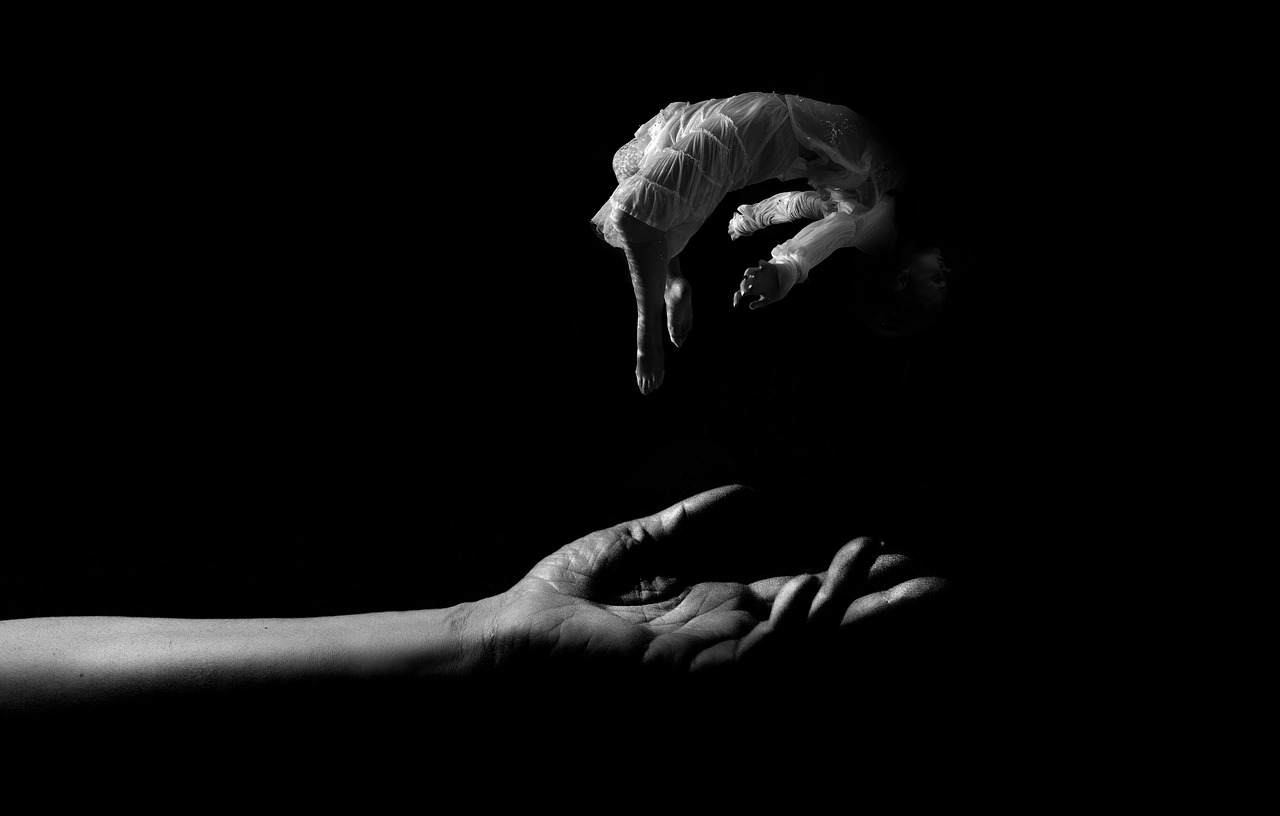
Alienation and Isolation
In Franz Kafka’s The Metamorphosis, the theme of alienation is woven intricately into the fabric of the narrative, illustrating the profound sense of isolation experienced by the protagonist, Gregor Samsa. After his shocking transformation into a giant insect, Gregor finds himself not only physically altered but also emotionally and socially estranged from his family and the world around him. This metamorphosis serves as a powerful symbol of the existential crisis that arises when one is confronted with the absurdity of existence.
Gregor's initial reaction to his transformation is one of disbelief and confusion. He struggles to comprehend how his identity has shifted so drastically, leading to a fundamental questioning of his own self-worth. As he grapples with his new reality, the feelings of alienation intensify, prompting readers to reflect on their own experiences of feeling out of place in a society that often prioritizes conformity over individuality. This sense of being an outsider is a hallmark of existential thought, where the individual must confront the void of meaning in a world that seems indifferent to their plight.
Moreover, Kafka expertly showcases the impact of societal norms on personal identity through Gregor's relationship with his family. Initially, Gregor is the primary breadwinner, a role that grants him a sense of purpose and belonging. However, once he can no longer fulfill this role due to his transformation, the dynamics shift dramatically. The family’s reaction is not one of compassion but rather a reflection of their own self-interest. They begin to see Gregor not as a loved one but as a burden, leading to a deepening of his isolation. This shift highlights how societal expectations can distort familial love, revealing the fragile nature of human connections when faced with adversity.
The emotional disconnection displayed by Gregor’s family is particularly striking. Initially, they exhibit a semblance of concern, but as time passes, their empathy wanes, replaced by resentment and frustration. This deterioration of relationships serves as a poignant reminder of how easily bonds can fray when one fails to meet societal standards. Gregor’s plight becomes a metaphor for the existential struggle against the alienation that many individuals face in a world that often prioritizes productivity and conformity over genuine human connection.
In a world where individuality is often sacrificed at the altar of societal expectations, Kafka’s portrayal of Gregor’s alienation resonates deeply. It prompts readers to consider the implications of their own relationships and the ways in which societal pressures can lead to feelings of inadequacy and isolation. The question arises: how do we navigate our own identities in a world that often feels hostile to our true selves? The absurdity of Gregor's situation serves as a stark reminder that the quest for meaning and connection is fraught with challenges, yet it is a journey that is undeniably worth undertaking.
- What is the main theme of alienation in The Metamorphosis?
The main theme revolves around Gregor Samsa's transformation and how it leads to his emotional and social estrangement from his family and society, highlighting the existential crisis of identity.
- How does Gregor's family react to his transformation?
Initially concerned, they gradually become resentful and view him as a burden, showcasing the fragility of familial bonds under societal pressures.
- What does Gregor's transformation symbolize?
It symbolizes existential dread, loss of identity, and the absurdity of existence, prompting readers to reflect on their own experiences of alienation.
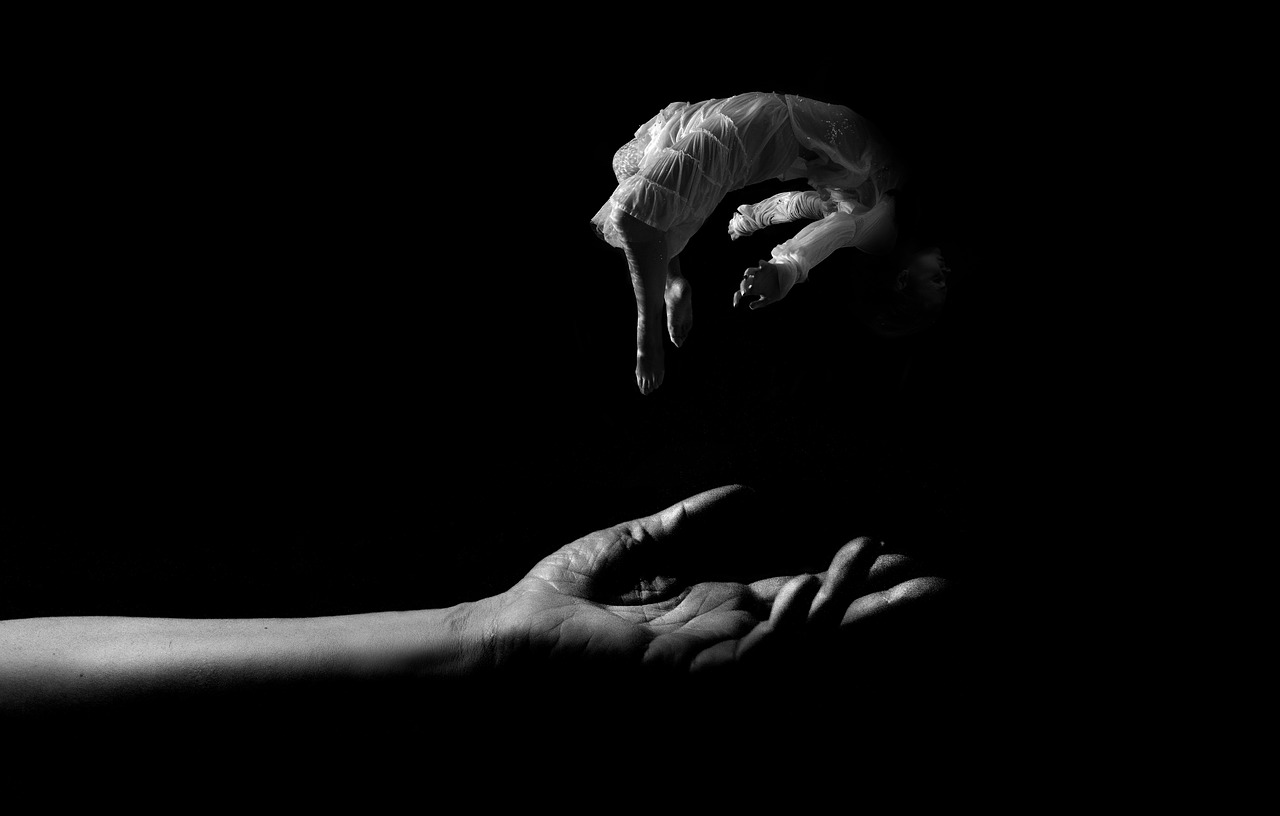
The Role of Family Dynamics
In Franz Kafka’s The Metamorphosis, the intricate dynamics of the Samsa family play a pivotal role in shaping the narrative and the protagonist's existential crisis. Gregor Samsa's transformation into an insect is not just a physical change; it serves as a catalyst that unveils the underlying tensions and complexities within his family. Initially, Gregor is the breadwinner, a role that defines his identity and worth in the eyes of his family. However, once he becomes incapacitated, the family's reaction reveals their true feelings and expectations, laying bare the fragility of familial bonds.
As the story unfolds, we see how Gregor’s metamorphosis leads to a profound shift in family dynamics. His once supportive family quickly turns into a group of individuals burdened by his new condition. The emotional detachment exhibited by his parents and sister, Grete, is striking. They transition from concern to resentment, reflecting a harsh reality: the family's love is conditional, heavily reliant on Gregor’s ability to fulfill his role as a provider. This shift not only accentuates Gregor’s alienation but also raises critical questions about the nature of familial love and obligation.
Kafka masterfully illustrates how societal expectations shape familial relationships. The Samsa family embodies a microcosm of society, where conformity and productivity are paramount. When Gregor can no longer contribute, he becomes a source of shame and discomfort. This leads to a chilling realization: in a world governed by utility, love can easily transform into disdain. The family’s initial sympathy fades, replaced by a sense of burden, demonstrating how quickly familial bonds can deteriorate under societal pressures.
Moreover, the role of Grete, Gregor’s sister, is particularly telling. Initially, she shows compassion and attempts to care for him, but as time progresses, her attitude shifts dramatically. Grete’s transformation from a nurturing figure to one of the harshest critics of Gregor’s condition highlights the impact of societal expectations on personal relationships. Her eventual rejection of Gregor symbolizes a broader existential theme: the struggle for identity and acceptance in a world that values conformity over individuality.
In essence, the dynamics within the Samsa family serve as a poignant commentary on the human condition. They reflect the existential struggle between individual identity and societal expectations, emphasizing how easily relationships can fracture when one fails to adhere to imposed roles. Kafka forces readers to confront uncomfortable truths about the nature of love, obligation, and the often-unforgiving landscape of familial relationships.
- What does Gregor Samsa's transformation symbolize?
Gregor's transformation symbolizes existential dread and the loss of identity, prompting readers to question the nature of self and existence. - How does family dynamics affect Gregor's experience?
The family dynamics highlight the conditional nature of love and support, revealing how quickly relationships can deteriorate when one fails to conform to societal expectations. - What role does Grete play in the story?
Grete initially represents compassion but eventually embodies the harsh realities of societal pressures, showcasing the transformation of familial love into resentment. - What existential themes are present in The Metamorphosis?
The themes of alienation, absurdity, and the search for meaning are central to the narrative, reflecting the complexities of human existence.
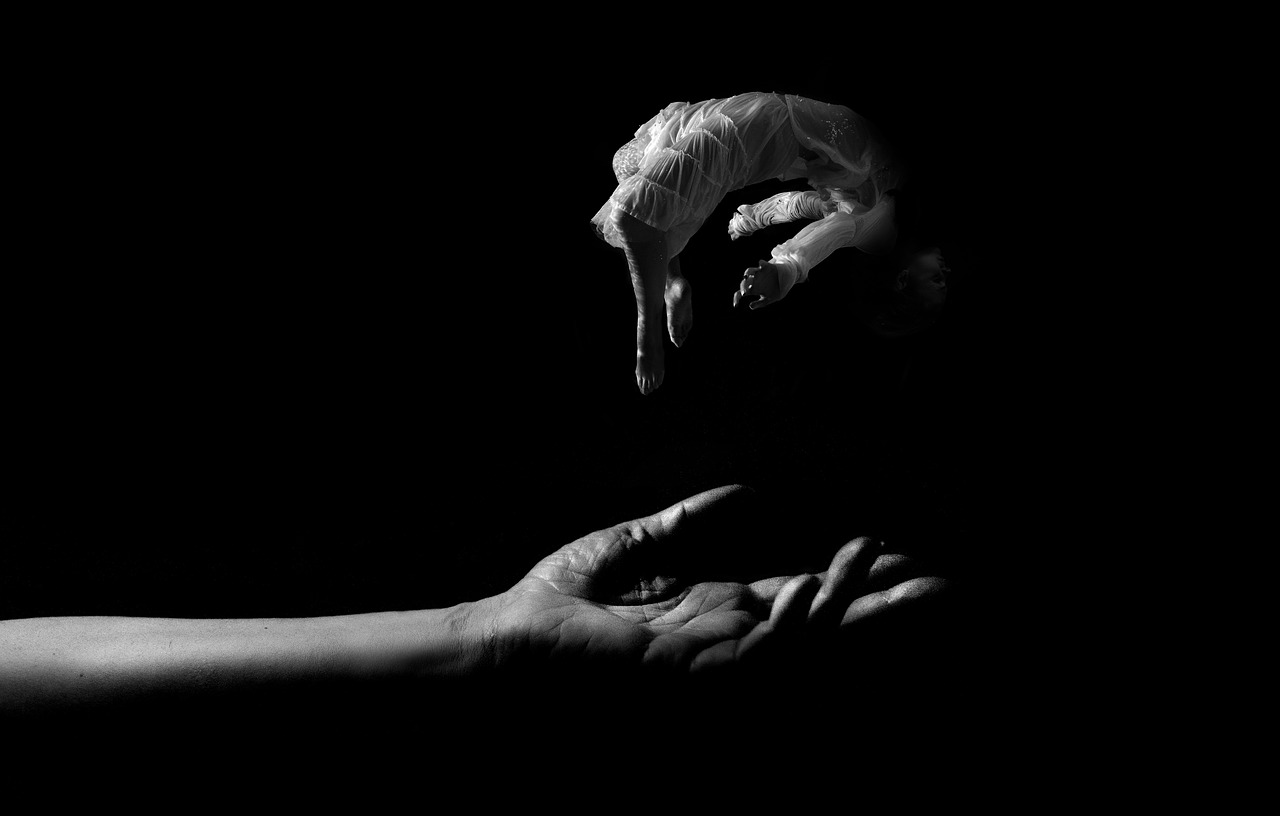
Societal Expectations
In The Metamorphosis, Gregor Samsa's transformation into an insect serves as a stark representation of the pressures exerted by societal expectations. These expectations can be likened to an invisible weight that individuals carry, often without realizing its burden until it becomes too much to bear. Gregor, once the breadwinner of his family, embodies the struggles of meeting these demands, as he is thrust into a world where he is no longer able to fulfill his role. This shift not only alters his identity but also exposes the fragility of his existence in the eyes of his family and society.
Societal expectations dictate how one should behave, succeed, and contribute to the collective. In Gregor's case, his transformation strips away his ability to conform to these norms, leading to a profound sense of inadequacy. The pressure to provide for his family, to be a dutiful son and brother, becomes an insurmountable challenge when he is no longer human in their eyes. This transformation illustrates a critical point: when individuals fail to meet societal standards, they risk being cast aside, much like Gregor himself.
Moreover, the expectations placed upon Gregor are not just personal; they reflect broader societal norms that often prioritize productivity and conformity over individual well-being. The reaction of the Samsa family to Gregor's new form highlights this stark reality. Initially, they are horrified, but as time passes, their feelings shift to resentment and shame. This emotional detachment showcases how societal pressures can fracture familial bonds and lead to a crisis of identity. The family’s inability to accept Gregor’s new form mirrors society's tendency to reject those who do not fit the mold.
To further illustrate this, consider the following table that outlines the key societal expectations placed upon Gregor before and after his transformation:
| Expectation | Before Transformation | After Transformation |
|---|---|---|
| Financial Provider | Supported family financially | Unable to work, viewed as a burden |
| Family Role | Beloved son and brother | Alienated and rejected |
| Social Acceptance | Respected member of society | Feared and hidden away |
This table highlights the drastic shift in Gregor's status and the resulting alienation he experiences. It’s a poignant reminder that societal expectations can be both a guiding force and a source of profound isolation. The narrative compels readers to reflect on their own experiences with societal pressures and the potential consequences of failing to meet these standards. Ultimately, Gregor's tragic fate serves as a cautionary tale about the dangers of allowing societal norms to dictate one's identity and worth.

Emotional Disconnection
The theme of emotional disconnection is a poignant thread woven throughout Kafka's The Metamorphosis. As Gregor Samsa undergoes his shocking transformation into a grotesque insect, the emotional ties that bind him to his family begin to fray and unravel. Initially, one might expect compassion and understanding from loved ones in times of distress. However, what unfolds is a chilling portrayal of how quickly affection can dissolve into repulsion and indifference. This disconnection not only amplifies Gregor's suffering but also serves as a stark reminder of the fragility of human relationships.
As Gregor struggles with his new identity, he becomes increasingly isolated within his own home. The once warm and familiar space turns into a prison, a stark reflection of his family's growing alienation. They no longer see him as their son or brother but rather as a burden, a grotesque reminder of their own limitations and societal expectations. This shift in perception leads to a profound emotional detachment, as Gregor’s family members begin to withdraw their support and affection. They are unable to reconcile their love for the person Gregor was with the creature he has become, highlighting the uncomfortable reality that love can be conditional.
Moreover, the emotional disconnection is not just limited to Gregor’s relationship with his family; it extends to the broader societal context. As he struggles to communicate and express his needs, the outside world becomes equally unresponsive. The inability of those around him to empathize with his plight underscores the existential theme of isolation. It raises a fundamental question: how do we connect with others when our very essence has been altered? Kafka masterfully illustrates that in a world where absurdity reigns, the bonds of human connection can easily fray.
To further understand this emotional disconnection, we can look at the following aspects:
- Familial Expectations: The Samsa family’s expectations of Gregor as the breadwinner create a rift when he can no longer fulfill that role.
- Societal Norms: The pressure to conform to societal standards of productivity and normalcy leads to Gregor's further alienation.
- Loss of Communication: Gregor's inability to communicate with his family exacerbates feelings of loneliness and despair.
In conclusion, Kafka's exploration of emotional disconnection in The Metamorphosis serves as a chilling reminder of how quickly love can turn to disdain when faced with the unfamiliar. It challenges readers to reflect on their own relationships and consider the delicate balance between acceptance and rejection. As Gregor's world collapses around him, we are left to ponder: how do we navigate the complexities of connection in an increasingly absurd existence?
- What is the significance of Gregor's transformation?
Gregor's transformation symbolizes the existential crisis and the struggle for identity in a world that often feels absurd and indifferent. - How does the family react to Gregor's change?
The family initially feels shock and concern, but as time passes, their feelings shift to frustration and alienation, highlighting themes of emotional disconnection. - What does Kafka suggest about societal expectations?
Kafka critiques societal norms that prioritize productivity and conformity, illustrating how these pressures can lead to personal despair and alienation.

Search for Meaning
The quest for meaning is a central theme in Franz Kafka's The Metamorphosis, as the protagonist, Gregor Samsa, grapples with his new reality following his shocking transformation. Imagine waking up one day to find that your entire existence has been turned upside down; this is exactly what Gregor experiences. His metamorphosis into a grotesque insect is not just a physical change but a profound crisis that forces him to confront the very essence of his being. In a world that suddenly seems chaotic and absurd, Gregor's struggle to find purpose becomes a mirror reflecting our own existential dilemmas.
As he navigates his new life, Gregor's search for meaning can be likened to a ship lost at sea, desperately trying to find its way back to shore. He begins to question the foundations of his identity: Who am I now? What is my purpose? These questions resonate with anyone who has ever felt lost or disconnected from their own life. Kafka brilliantly captures this internal turmoil, illustrating how the absurdity of existence can lead to a profound sense of despair.
Throughout the narrative, we witness Gregor's attempts to communicate with his family and regain a sense of normalcy. However, his efforts are met with confusion and rejection, deepening his sense of isolation. This emotional disconnect serves as a stark reminder of the challenges individuals face in their quest for meaning, especially in a society that often prioritizes conformity over individuality. Kafka's portrayal of Gregor's struggle emphasizes that the search for meaning is not just a personal endeavor but a universal human experience.
In his attempts to make sense of his new reality, Gregor embodies the existential belief that meaning is not something that is handed to us; rather, it is something we must actively seek out. This pursuit can often feel like wandering through a dense fog, where every step forward is met with uncertainty. The futility of his efforts is palpable, yet it is this very struggle that highlights the absurdity of life itself. Just as Gregor grapples with his identity, we too must confront our own existential questions:
- What gives our lives meaning?
- How do we define ourselves in a world that often feels indifferent?
- Can we find purpose in the face of absurdity?
Ultimately, Kafka leaves us with more questions than answers, inviting readers to reflect on their own existence. The absurdity of Gregor's transformation and his futile search for meaning illustrates that while life may seem chaotic and devoid of purpose, it is the journey of seeking that enriches our human experience. In this way, Kafka not only presents a narrative of despair but also one of resilience, reminding us that even in the face of the absurd, the search for meaning is a fundamental part of what it means to be human.
- What is the main theme of The Metamorphosis?
The main theme revolves around existentialism, focusing on identity, alienation, and the search for meaning in an absurd world. - How does Gregor Samsa's transformation symbolize existential dread?
Gregor's transformation into an insect serves as a metaphor for the loss of identity and the overwhelming sense of dread that accompanies such a profound change in life circumstances. - What role does family play in Gregor's search for meaning?
Gregor's family dynamics illustrate the complexities of relationships and societal expectations, which contribute to his feelings of isolation and despair. - How does Kafka portray the absurdity of existence?
Kafka's narrative showcases the unpredictability of life and the futility of seeking rational explanations, emphasizing that meaning must be actively sought rather than passively received.

The Metamorphosis,
This article explores the themes of existentialism as portrayed in Franz Kafka's The Metamorphosis, examining the protagonist's transformation, alienation, and the search for meaning in a seemingly absurd world.
Gregor Samsa's sudden metamorphosis into an insect serves as a powerful metaphor for existential dread and the loss of identity, prompting readers to question the nature of self and existence. Imagine waking up one day, not just late for work, but transformed into a creature so alien that your very family recoils in horror. This shocking transformation encapsulates the essence of existentialism, where the individual grapples with the absurdity of their new reality. The profound disorientation Gregor experiences symbolizes the internal struggle many face when confronted with life's unpredictable changes. In this sense, Kafka doesn’t just tell a story; he challenges us to reflect on our own identities and the societal roles we play.
Kafka illustrates the profound alienation experienced by Gregor, reflecting existentialist themes of isolation in a society that fails to understand or accept the individual, leading to a crisis of identity. Gregor's transformation alienates him not only from his family but also from his own sense of self. As he becomes more insect-like, his humanity diminishes, and he finds himself trapped in a world where he is no longer recognized as a person. This theme of isolation resonates deeply, as many individuals feel disconnected in a world that often prioritizes conformity over authenticity. The irony here is palpable: as Gregor becomes more physically constrained, his emotional and psychological isolation expands.
The Samsa family's reaction to Gregor's transformation highlights the complexities of familial relationships and societal expectations, revealing how these dynamics contribute to his existential crisis and ultimate despair. Initially, there is a flicker of concern from his family, but as time passes, their compassion wanes, replaced by frustration and resentment. This shift underscores a harsh reality: families can often become the very source of isolation they are supposed to alleviate. The emotional detachment displayed by Gregor’s family showcases how relationships can deteriorate when one fails to conform to societal standards. They are quick to judge, and their inability to accept Gregor’s new form reflects a broader societal tendency to reject those who diverge from the norm.
Gregor's struggle against societal norms emphasizes the pressures individuals face, illustrating how expectations can lead to feelings of inadequacy and a loss of personal meaning. Society often imposes rigid standards, and Gregor's previous role as the family breadwinner becomes a distant memory as he grapples with his new identity. The weight of these expectations can be suffocating, leaving individuals feeling trapped in a cycle of despair. In The Metamorphosis, Gregor’s failure to meet these expectations ultimately leads to his downfall, serving as a cautionary tale for those who find themselves ensnared by the very constructs they seek to escape.
The emotional detachment displayed by Gregor’s family underscores the theme of alienation, showcasing how relationships can deteriorate when one fails to conform to societal standards. As Gregor becomes more insect-like, his family’s love and support diminish, revealing a stark truth: love is often conditional. The more he struggles to adapt, the more they withdraw. This disconnection is not just a personal tragedy; it reflects a broader commentary on the human condition, where the quest for acceptance can lead to profound loneliness. In this way, Kafka poignantly illustrates the fragility of human relationships in the face of existential crises.
Throughout The Metamorphosis, Gregor's journey reflects the existential quest for meaning in a chaotic world, prompting readers to consider the absurdity of life and the search for purpose. As Gregor grapples with his new reality, he embarks on an internal journey that raises fundamental questions about existence. What does it mean to live? How do we find meaning in a world that often seems indifferent to our struggles? These questions resonate with readers, inviting them to reflect on their own lives and the search for significance amidst the chaos.
Kafka’s narrative embodies the existential belief in the absurd, as Gregor's inexplicable transformation serves as a reminder of life's unpredictability and the futility of seeking rational explanations for existence. In a world where logic often fails, Gregor’s plight becomes a poignant illustration of the absurdity of the human experience. The absurdity lies not just in his transformation but in the reactions of those around him, who grapple with their own inability to comprehend the situation. This absurdity challenges readers to confront their own beliefs and assumptions about life, urging them to embrace the chaos rather than seek comfort in false narratives.
Gregor's transformation challenges the notion of freedom, as his physical constraints mirror the existential struggle for autonomy and the inherent limitations imposed by society. Initially, Gregor may seem to lose his freedom, but as he becomes more insect-like, he also sheds the burdens of societal expectations. This paradox raises intriguing questions about the nature of freedom itself. Is true freedom found in the absence of constraints, or is it the ability to define one’s own existence despite them? Kafka invites us to ponder these questions, engaging us in a deeper exploration of what it means to be truly free.
Kafka emphasizes the consequences of inaction and resignation, illustrating how Gregor’s inability to adapt to his new reality leads to tragic outcomes, reinforcing existentialist themes of choice and responsibility. Throughout the narrative, Gregor's passivity becomes his downfall, as he fails to assert himself in a world that demands action. This serves as a stark reminder that inaction can have dire consequences, urging readers to reflect on their own lives and the choices they make. In the end, Gregor's tragic fate becomes a powerful metaphor for the existential struggle we all face: the need to confront our reality, make choices, and ultimately, take responsibility for our existence.
- What is the main theme of The Metamorphosis?
The central theme revolves around existentialism, exploring identity, alienation, and the absurdity of life. - How does Gregor's transformation reflect existential dread?
Gregor's sudden change into an insect symbolizes the fear of losing one's identity and the struggle to find meaning in an absurd world. - What role does family play in Gregor's alienation?
The family's reaction to Gregor's transformation highlights the complexities of familial relationships and societal expectations, leading to his profound isolation. - How does Kafka illustrate the absurdity of existence?
Through Gregor's inexplicable transformation and the indifferent reactions of those around him, Kafka showcases the unpredictable nature of life and the futility of seeking rational explanations.
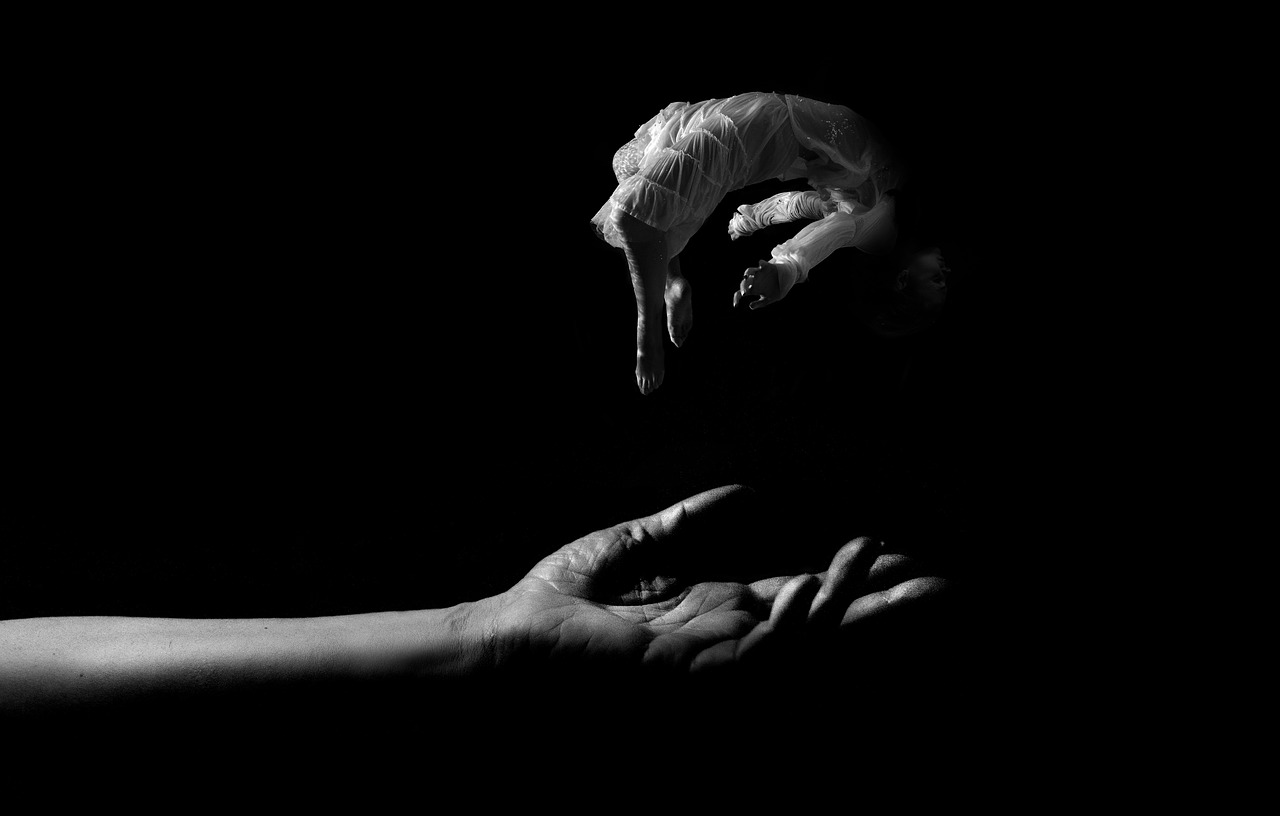
Gregor's journey reflects the existential quest for meaning in a chaotic world, prompting readers to consider the absurdity of life and the search for purpose.
This article explores the themes of existentialism as portrayed in Franz Kafka's The Metamorphosis, examining the protagonist's transformation, alienation, and the search for meaning in a seemingly absurd world.
Gregor Samsa's sudden metamorphosis into an insect serves as a powerful metaphor for existential dread and the loss of identity, prompting readers to question the nature of self and existence.
Kafka illustrates the profound alienation experienced by Gregor, reflecting existentialist themes of isolation in a society that fails to understand or accept the individual, leading to a crisis of identity.
The Samsa family's reaction to Gregor's transformation highlights the complexities of familial relationships and societal expectations, revealing how these dynamics contribute to his existential crisis and ultimate despair.
Gregor's struggle against societal norms emphasizes the pressures individuals face, illustrating how expectations can lead to feelings of inadequacy and a loss of personal meaning.
The emotional detachment displayed by Gregor’s family underscores the theme of alienation, showcasing how relationships can deteriorate when one fails to conform to societal standards.
Throughout The Metamorphosis, Gregor's journey reflects the existential quest for meaning in a chaotic world, prompting readers to consider the absurdity of life and the search for purpose.
Kafka’s narrative embodies the existential belief in the absurd, as Gregor's inexplicable transformation serves as a reminder of life's unpredictability and the futility of seeking rational explanations for existence.
Gregor's transformation challenges the notion of freedom, as his physical constraints mirror the existential struggle for autonomy and the inherent limitations imposed by society.
Kafka emphasizes the consequences of inaction and resignation, illustrating how Gregor’s inability to adapt to his new reality leads to tragic outcomes, reinforcing existentialist themes of choice and responsibility.
In the midst of his chaotic transformation, Gregor Samsa embarks on a profound journey that mirrors the universal quest for meaning. Imagine waking up one day, not just to a new day, but to an entirely new existence, one that strips away everything you once identified with. This is the essence of Gregor's struggle. He becomes a creature that is no longer capable of fulfilling his role as a provider, a son, or even a human being. In the chaos of his new reality, he is forced to confront the absurdity of life itself. The world around him continues to spin, yet he finds himself in a state of existential paralysis, grappling with questions that have no easy answers.
As readers, we are drawn into this turmoil, compelled to reflect on our own lives and the meaning we ascribe to our existence. In a world that often feels nonsensical, Gregor’s plight serves as a poignant reminder of the struggle we all face in seeking purpose. Much like Gregor, we may find ourselves questioning the very fabric of our identities, especially when faced with unforeseen circumstances. The absurdity of his situation provokes a profound inquiry into the nature of purpose: What does it mean to exist? How do we define our worth?
Kafka masterfully intertwines Gregor's search for meaning with the chaotic elements of his transformation. The absurdity of his new form forces him to confront the limitations of his previous identity, leading him to a deeper understanding of himself and his place in the world. In this sense, Gregor's journey becomes not just a personal odyssey, but a universal exploration of the human condition. It prompts us to consider that perhaps meaning is not something to be found, but rather something to be created, even in the most bewildering of circumstances.
- What is existentialism? Existentialism is a philosophical movement that emphasizes individual existence, freedom, and choice, often exploring themes of absurdity and the search for meaning.
- How does Gregor's transformation symbolize existential themes? Gregor's transformation into an insect represents the loss of identity and the struggle for meaning in an absurd world, highlighting feelings of alienation and isolation.
- What role does family play in Gregor's existential crisis? The Samsa family’s reaction to Gregor’s transformation reflects societal expectations and emotional disconnection, contributing to his profound sense of alienation.
- What does Kafka suggest about the search for meaning? Kafka suggests that the search for meaning is a chaotic and often futile endeavor, yet it is an essential part of the human experience.

The Absurdity of Existence
Kafka’s narrative in The Metamorphosis embodies the existential belief in the absurd, a concept that resonates deeply with the human experience. Imagine waking up one morning, only to find yourself transformed into a grotesque insect. This shocking metamorphosis serves as a powerful reminder of life's unpredictability and the inherent chaos that surrounds us. Just like a jigsaw puzzle missing crucial pieces, our attempts to find rational explanations for existence often lead to frustration. In this absurd world, where logic seems to falter, Gregor Samsa’s plight becomes a mirror reflecting our own existential dilemmas.
As readers delve into Gregor's chaotic existence, they are confronted with a harsh reality: life often lacks meaning, and the search for purpose can feel like chasing shadows. The absurdity of Gregor's transformation is not just physical; it also symbolizes the emotional and psychological turmoil that many individuals experience in their lives. The struggle to adapt to an unpredictable world can leave one feeling disoriented and lost. It raises the question: how do we find meaning in a life that seems to defy logic?
Kafka masterfully illustrates this absurdity through Gregor's interactions with his family and society. His transformation isolates him, highlighting the disconnection between individual identity and societal expectations. The way his family reacts—initially shocked, then increasingly resentful—serves as a poignant reminder of how society often fails to accept those who deviate from the norm. In this sense, Gregor's condition becomes a metaphor for the alienation many people feel when they do not conform to societal standards.
To further understand this theme, consider the following aspects of absurdity as depicted in Kafka's work:
- Unpredictability: Life can change in an instant, often without warning.
- Isolation: Individuals may feel estranged from their families and society.
- Search for meaning: The quest for purpose can often lead to frustration and despair.
In the end, Gregor's tragic fate serves as a sobering reminder of the consequences of ignoring the absurdity of existence. His inability to adapt to his new reality leads to his ultimate demise, underscoring the existentialist themes of choice and responsibility. The absurdity of life is not just a philosophical concept; it is a lived experience that challenges us to confront our own realities. Are we willing to accept the absurd and seek our own meaning, or will we succumb to despair in the face of an indifferent universe?
- What is existentialism? Existentialism is a philosophical movement that emphasizes individual existence, freedom, and choice, often exploring themes of meaning and absurdity.
- How does Kafka portray absurdity in The Metamorphosis? Kafka illustrates absurdity through Gregor's inexplicable transformation and the chaotic reactions of those around him, highlighting the unpredictability of life.
- What can we learn from Gregor's transformation? Gregor's story teaches us about the importance of accepting life's absurdities and the need to seek personal meaning despite societal pressures.
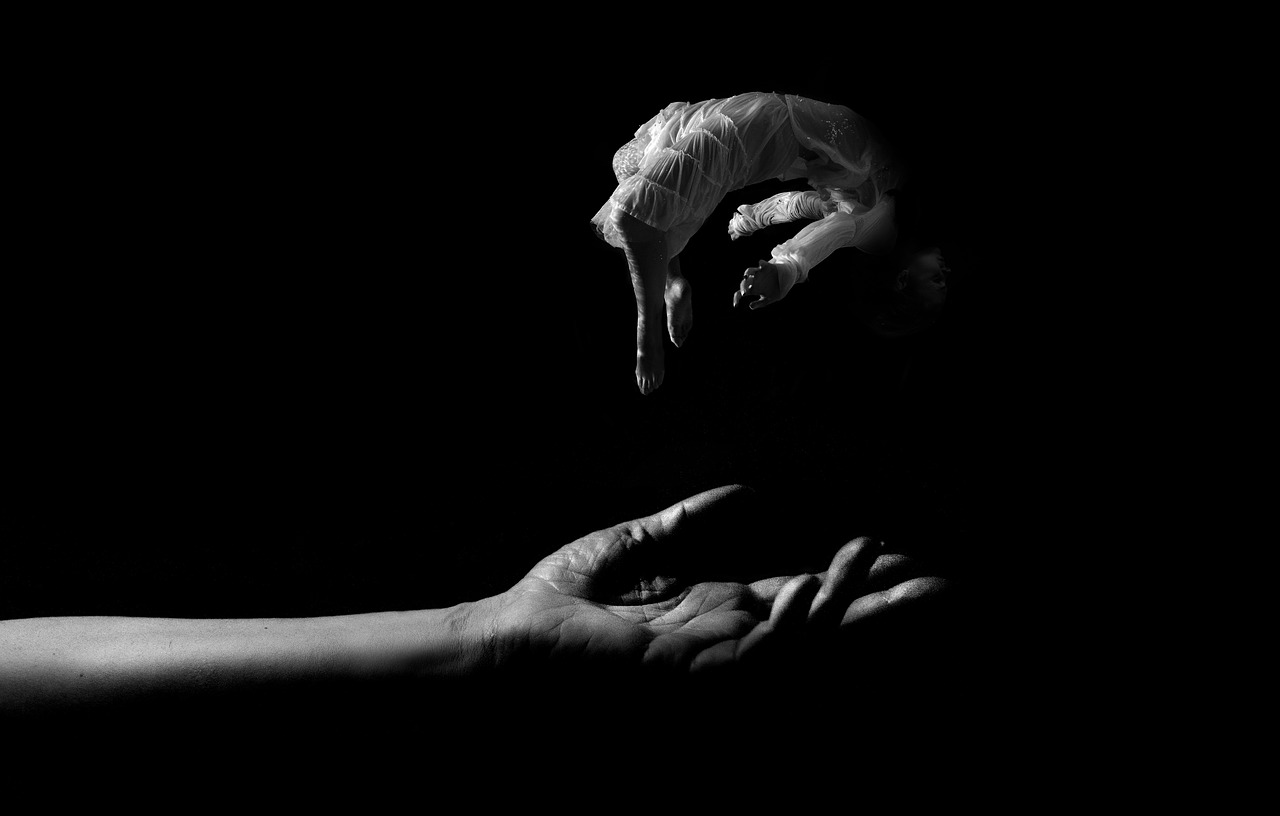
Existential Freedom
In Franz Kafka’s The Metamorphosis, the concept of becomes a pivotal theme, intricately woven into the fabric of Gregor Samsa's tragic narrative. When Gregor awakens to find himself transformed into a giant insect, he is thrust into a reality that strips him of his previous identity and freedom. This metamorphosis is not merely a physical change; it symbolizes the ultimate loss of autonomy, forcing readers to grapple with the paradox of freedom in a constrained existence. How can one be free when bound by the very essence of their being?
Initially, Gregor’s life is defined by his role as the breadwinner, a position that grants him some semblance of purpose. However, his transformation into an insect serves as a stark reminder of how societal roles can imprison individuals, stripping away their freedom to choose their own paths. This raises a profound question: Are we truly free if our identities are dictated by societal expectations? The irony is palpable; while Gregor's physical form changes, his internal struggle for freedom remains constant. He is trapped not only by his new body but also by the expectations of his family and society.
Kafka skillfully illustrates this struggle through Gregor’s interactions with his family. As he becomes increasingly isolated, his attempts to communicate and connect with them highlight the limitations of his freedom. The more Gregor tries to assert his existence, the more he is met with rejection and alienation. This emotional disconnect emphasizes a crucial point: freedom is not just about physical liberation; it is also about the ability to express oneself and be understood.
To further explore the theme of existential freedom, we can consider the following aspects:
- Physical Constraints: Gregor’s insect form represents the ultimate physical limitation, challenging the notion of freedom.
- Psychological Struggle: His internal battle reflects the existential crisis that arises when one's identity is at odds with societal norms.
- Family Dynamics: The reaction of his family to his transformation showcases how relationships can hinder personal freedom.
Ultimately, Gregor's journey serves as a cautionary tale about the consequences of relinquishing one's freedom to societal pressures. His tragic fate illustrates that inaction and resignation can lead to dire outcomes, reinforcing the existentialist belief that individuals must actively seek their own paths. The question remains: Can true freedom exist in a world that often demands conformity? Kafka leaves us pondering this unsettling dilemma, inviting us to reflect on our own lives and the choices we make.
- What is existential freedom? Existential freedom refers to the concept of individuals having the ability to make choices and define their own existence, often in the face of societal constraints.
- How does Gregor's transformation symbolize loss of freedom? Gregor's transformation into an insect represents a physical and existential loss of freedom, as he becomes unable to fulfill his societal role and express his identity.
- What role do societal expectations play in the theme of existential freedom? Societal expectations can limit personal freedom by imposing roles and responsibilities that individuals feel compelled to adhere to, often leading to a crisis of identity.
- Can we find freedom in isolation? While isolation can provide a sense of freedom from societal pressures, it can also lead to alienation and a deeper existential crisis, as seen in Gregor's experience.

The Consequences of Inaction
In Franz Kafka's The Metamorphosis, the theme of inaction is not just a backdrop; it is a central force that drives the narrative and shapes the fate of the protagonist, Gregor Samsa. Imagine waking up one day to find that your entire existence has been turned upside down—literally! Gregor's transformation into a monstrous insect is shocking, but what’s even more alarming is his response to this absurd situation. Instead of taking decisive action to confront his new reality, he succumbs to a paralyzing sense of helplessness. This inaction leads to a cascade of consequences that ultimately seal his fate.
At first, Gregor's inability to adapt seems almost comical, but as the story unfolds, it becomes clear that his passivity is a reflection of a deeper existential crisis. He feels trapped, not just in his new body but also in the expectations imposed by his family and society. This paralysis can be likened to a deer caught in headlights—frozen and unable to move, even as danger approaches. The consequences of Gregor's inaction are profound:
- Loss of Identity: As Gregor fails to assert himself in his new form, he gradually loses touch with his human identity. The more he withdraws, the more he becomes an object of disdain and pity.
- Family Alienation: His family's initial concern quickly turns into resentment as they struggle to cope with the burden of his transformation. Gregor's inaction exacerbates their feelings of alienation, as they are unable to connect with him emotionally.
- Tragic Outcomes: Ultimately, his inability to take control of his circumstances leads to tragic results, highlighting the existential belief that inaction can have dire consequences.
This deterioration is not merely a personal tragedy; it serves as a broader commentary on human existence. Kafka masterfully illustrates how societal pressures can paralyze individuals, leading them to make choices—or rather, the lack thereof—that culminate in despair. Gregor's resignation to his fate is a poignant reminder of the existential notion that we are often our own worst enemies. By failing to act, he relinquishes his autonomy and succumbs to the absurdity of his existence.
In the end, Gregor's story serves as a cautionary tale about the dangers of inaction. It compels readers to reflect on their own lives: Are we, too, allowing fear or societal expectations to dictate our choices? The consequences of inaction can be far-reaching, impacting not only the individual but also their relationships and societal standing. Thus, Kafka's narrative urges us to confront our circumstances, take responsibility for our choices, and strive to find meaning in the chaos of existence.
- What does Gregor Samsa's transformation symbolize?
Gregor's transformation symbolizes the existential dread of losing one's identity and the absurdity of life. - How does inaction affect Gregor's relationships with his family?
Gregor's inaction leads to alienation and resentment from his family, as they struggle to cope with his new reality. - What existential themes are explored in The Metamorphosis?
The novel explores themes of alienation, the search for meaning, and the consequences of societal expectations.
Frequently Asked Questions
- What is the main theme of existentialism in The Metamorphosis?
The main theme of existentialism in Kafka's The Metamorphosis revolves around the profound sense of alienation and the search for meaning in a chaotic world. Gregor Samsa's transformation into an insect serves as a metaphor for existential dread, prompting readers to reflect on identity, purpose, and the absurdity of existence.
- How does Gregor's transformation affect his identity?
Gregor's transformation drastically alters his identity, stripping him of his human qualities and reducing him to a mere insect. This metamorphosis symbolizes the loss of self and the struggle against societal expectations, leading to a crisis of identity as he grapples with his new reality and the reactions of those around him.
- What role does family play in Gregor's alienation?
The family dynamics in The Metamorphosis significantly contribute to Gregor's sense of alienation. Initially, his family relies on him as the breadwinner, but after his transformation, their emotional detachment and inability to accept him lead to a profound sense of isolation, highlighting the complexities of familial relationships in the face of societal norms.
- How do societal expectations impact Gregor's life?
Societal expectations weigh heavily on Gregor, forcing him to conform to roles that ultimately lead to his feelings of inadequacy. His struggle against these norms illustrates the pressures individuals face and emphasizes how such expectations can strip away personal meaning and contribute to existential despair.
- What does The Metamorphosis say about the absurdity of existence?
The Metamorphosis embodies the existential belief in the absurd, showcasing how Gregor's inexplicable transformation reflects life's unpredictability. Kafka suggests that seeking rational explanations for existence is futile, encouraging readers to confront the absurdity of life and the chaos that often accompanies it.
- What lessons can be learned about freedom from Gregor's experience?
Gregor's experience challenges the conventional notion of freedom. His physical constraints after the transformation mirror the existential struggle for autonomy, revealing how societal limitations can hinder personal freedom and the ability to make meaningful choices in life.
- What are the consequences of inaction in The Metamorphosis?
Kafka emphasizes that inaction and resignation can lead to tragic outcomes. Gregor's failure to adapt to his new reality not only exacerbates his alienation but also ultimately results in his demise, underscoring the existential themes of choice, responsibility, and the importance of confronting one's circumstances.

